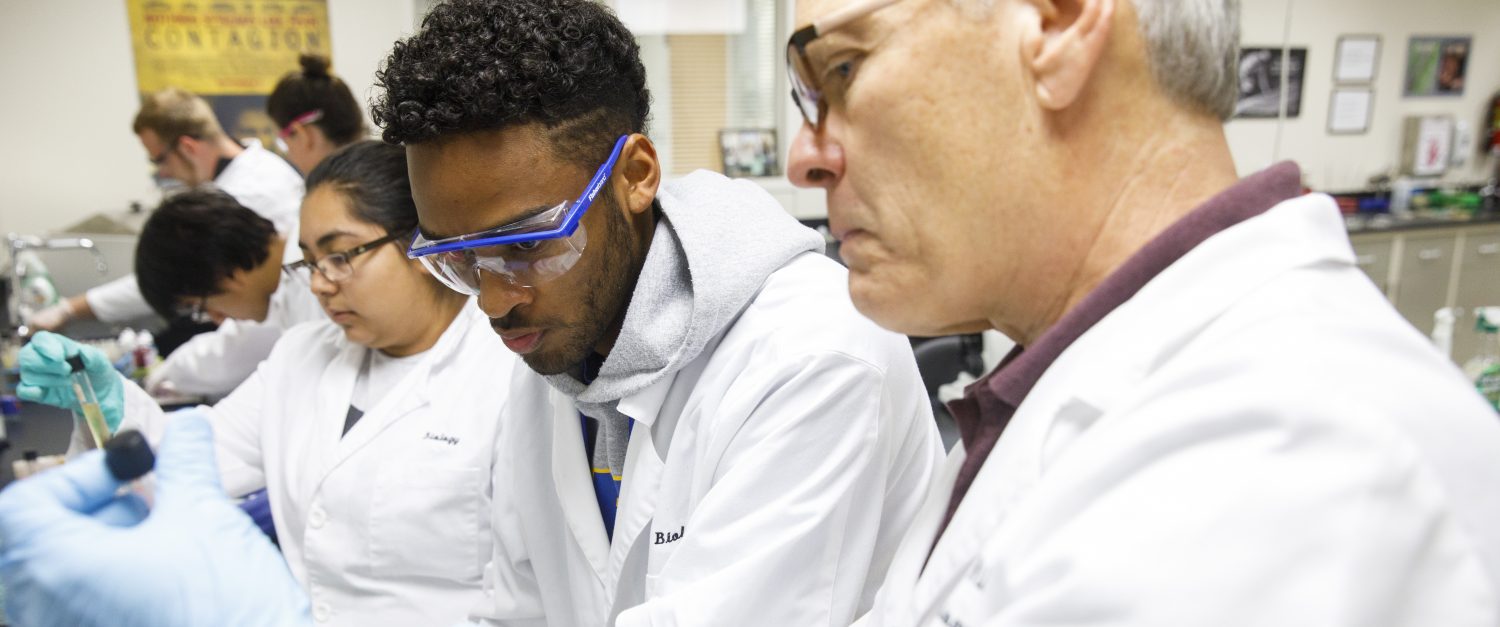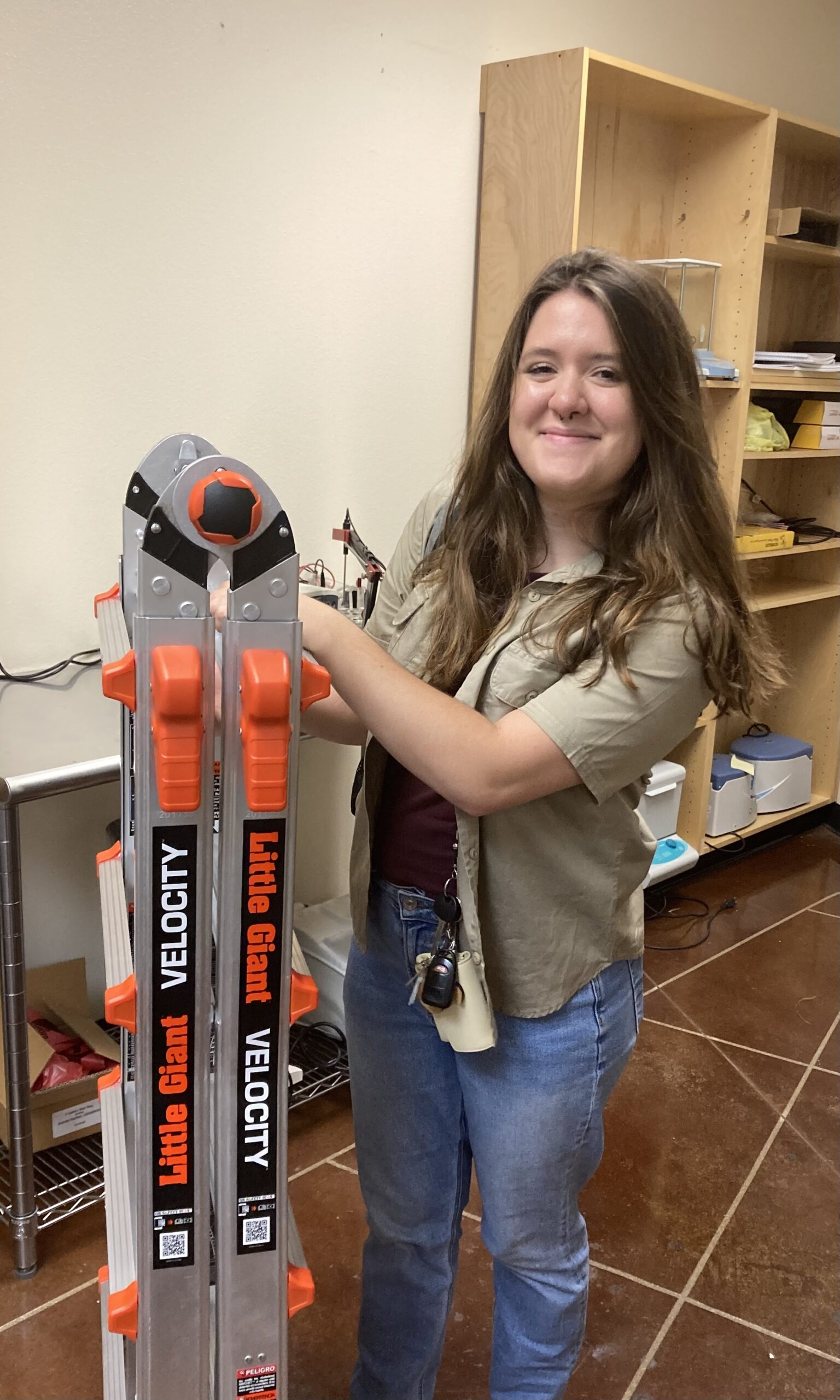Team Backyard Bats continued research activities through summer 2022. Our team uses “bat detectors” to record the echolocation calls of bats. Collected acoustic data can be used as a measure of general bat activity and can even allow us to estimate which particular species are present in an area.
Over winter and spring of this year, we collected data at four study sites in Abilene, Texas. This summer, we expanded to six study sites, so we are now studying a variety of habitat types throughout the city, including more urban, suburban, and rural.
Bats are most active in the warm summer months. The dataset collected this summer will allow us to compare bat activity in Abilene between winter, spring, and the peak summer season. We will continue data collection in the fall and construct a dataset that includes every season.
Abby Williams (pictured) is a member of Team Backyard Bats at Cisco College. Abby joined the team in fall 2021 and continued through summer 2022. Here she is seen with a ladder and field backpack ready to go out and maintain study sites. I asked Abby to share a bit about her research experience last year and this summer and why she thinks other students should consider joining a team.
Q: Tell us about your background and career goals.
A: “I started out at Cisco College in my Senior year of High School as a dual credit student. Currently, I’m working to earn an associate of science and arts and am set to graduate this spring. After graduation, I plan to pursue a bachelor’s degree in Sustainability or environmental science. I care very deeply about our planet and want to become an environmental engineer one day.”
Q: What is your favorite part of participating in a research team?
A: “My favorite
part of our research has been the field work and learning why our research matters. In the big country, there is very little research about bats. Not many sources can tell us what kinds of species live in our area. It’s important to have this information because bats are crucial to our ecosystems. As bats continue to face various threats to their population (white-nose syndrome, habitat loss, windmills, etc) we can use research like ours to form solutions on how to protect bat populations. I love field research because it’s a hands-on way to learn. Being out in the field with my peers and gaining first-hand experience is a unique experience. Problem-solving and working together to answer questions are challenging but exciting.”
Q: What has been the most challenging part of research?
A: “The most challenging part of our research was that everyone at the time was inexperienced and didn’t quite know what to expect. But it made it special, as a team, we started our research from the ground up, on
a topic most of us were unfamiliar with, and we were able to get results and present the research at the McMurry research festival.”
Q: Why would you encourage other students to join a research team?
A: “I would encourage other students to join a research team for many reasons but mainly to get out of the classroom and think outside the box. It can help provide direction if you’re still unsure about what you want to study. Also, you just meet really great people and form connections throughout the experience.”
Team Backyard Bats is now recruiting student researchers for fall 2022! Complete our interest form to learn more.

